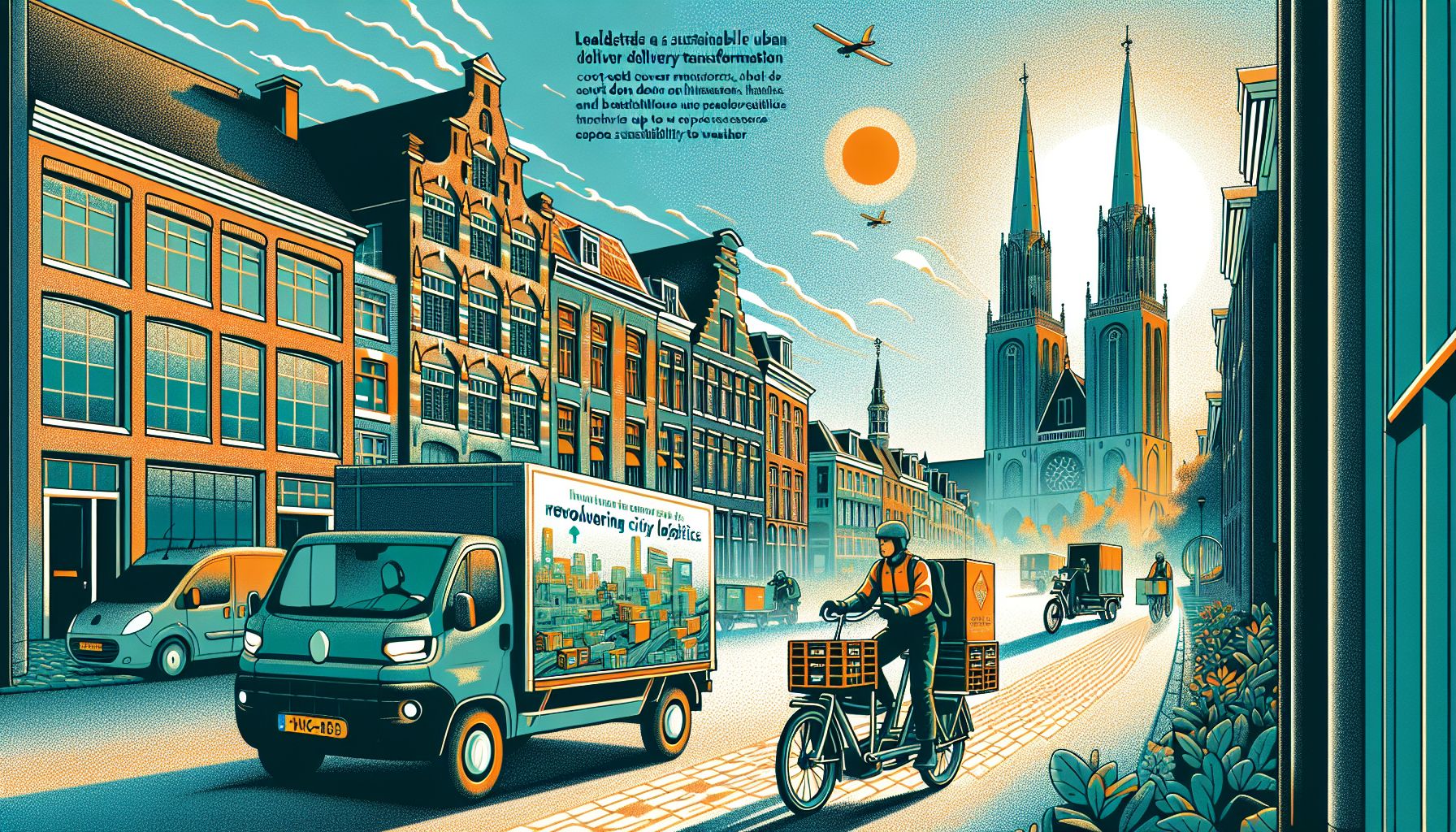Dutch Innovation Leads Urban Logistics Revolution with Cargo Bikes

Amsterdam, Tuesday, 15 October 2024.
The Netherlands spearheads a sustainable urban delivery transformation using cargo bikes. These eco-friendly vehicles offer a viable alternative to traditional vans, reducing emissions by up to 90% and cutting delivery costs. Despite challenges like weather sensitivity, cargo bikes are reshaping city logistics across Europe.
The Rise of Cargo Bikes in Urban Logistics
Cargo bikes are increasingly being adopted across Europe as a sustainable solution to the pressing challenges of urban logistics. As cities grapple with congestion and pollution, these bikes offer a zero-emission alternative capable of navigating crowded streets using dedicated cycle lanes, thereby enhancing delivery efficiency. The University of Westminster in London has found that cargo bikes can deliver goods faster than traditional vans, while reducing emissions by 90% compared to diesel vans and by a third when compared to electric vans[1].
Economic and Environmental Benefits
The economic viability of cargo bikes is notable. They incur five to ten times lower expenses per parcel than delivery vans when considering insurance, maintenance, depreciation, and energy costs[1]. Moreover, the shift towards cargo bikes is supported by various government subsidies across Europe, with countries like Austria, Germany, and France offering incentives ranging from €200 to €2,000 to aid businesses in this transition[1]. These financial supports, coupled with the environmental benefits, present cargo bikes as a compelling choice for urban logistics.
Challenges and Innovations
Despite their advantages, cargo bikes face challenges such as limited load capacity and weather dependency, particularly in colder, wetter conditions[1]. However, innovations continue to emerge. For instance, the establishment of strategically placed micro hubs is crucial for efficient operations. These hubs serve as mini distribution centers that minimize the distance between pickups and deliveries, although high land prices in urban areas can pose a barrier[1].
The Role of Municipal Support
Successful integration of cargo bikes into urban logistics relies heavily on municipal support. Cities must provide the necessary infrastructure and policies to facilitate shared logistics networks. This includes safe cycling infrastructure, as current city designs often fail to accommodate the larger size of cargo bikes[1]. Collaboration between public and private sectors is essential to overcome these hurdles and ensure the continued growth of cargo bike usage.
Innovative Events and Future Prospects
The International Cargo Bike Festival (ICBF), scheduled to take place from 25-26 October 2024 in Utrecht, Netherlands, underscores the growing importance of cargo bikes in modern logistics. Organized by Jos Sluijsmans and Tom Parr, the festival aims to promote cargo bikes as mainstream urban logistics solutions through a series of talks and exhibitions[3]. As cargo bikes continue to gain prominence, they promise to play a pivotal role in the sustainable transformation of urban logistics across Europe and beyond.

